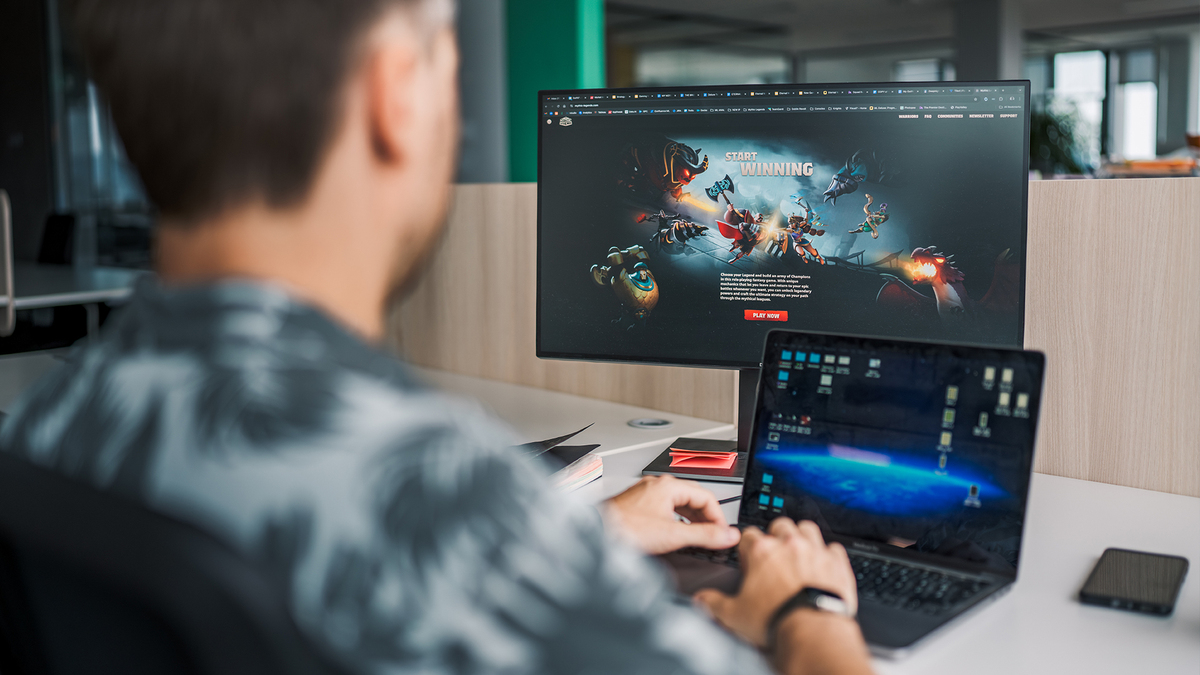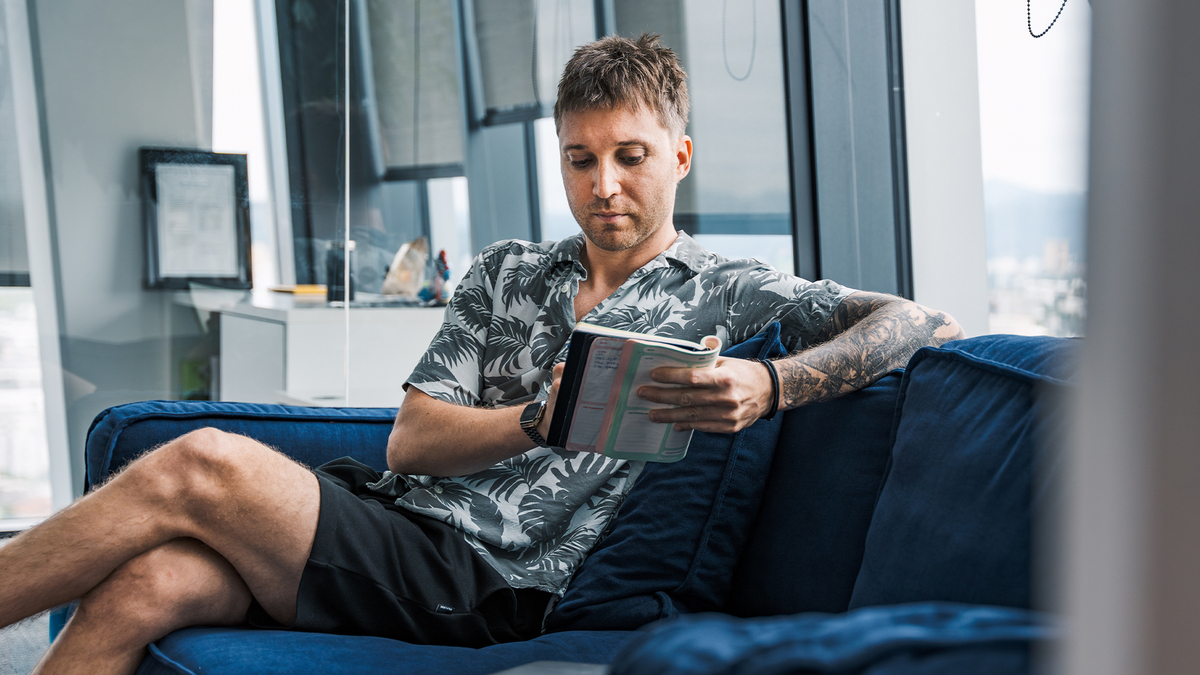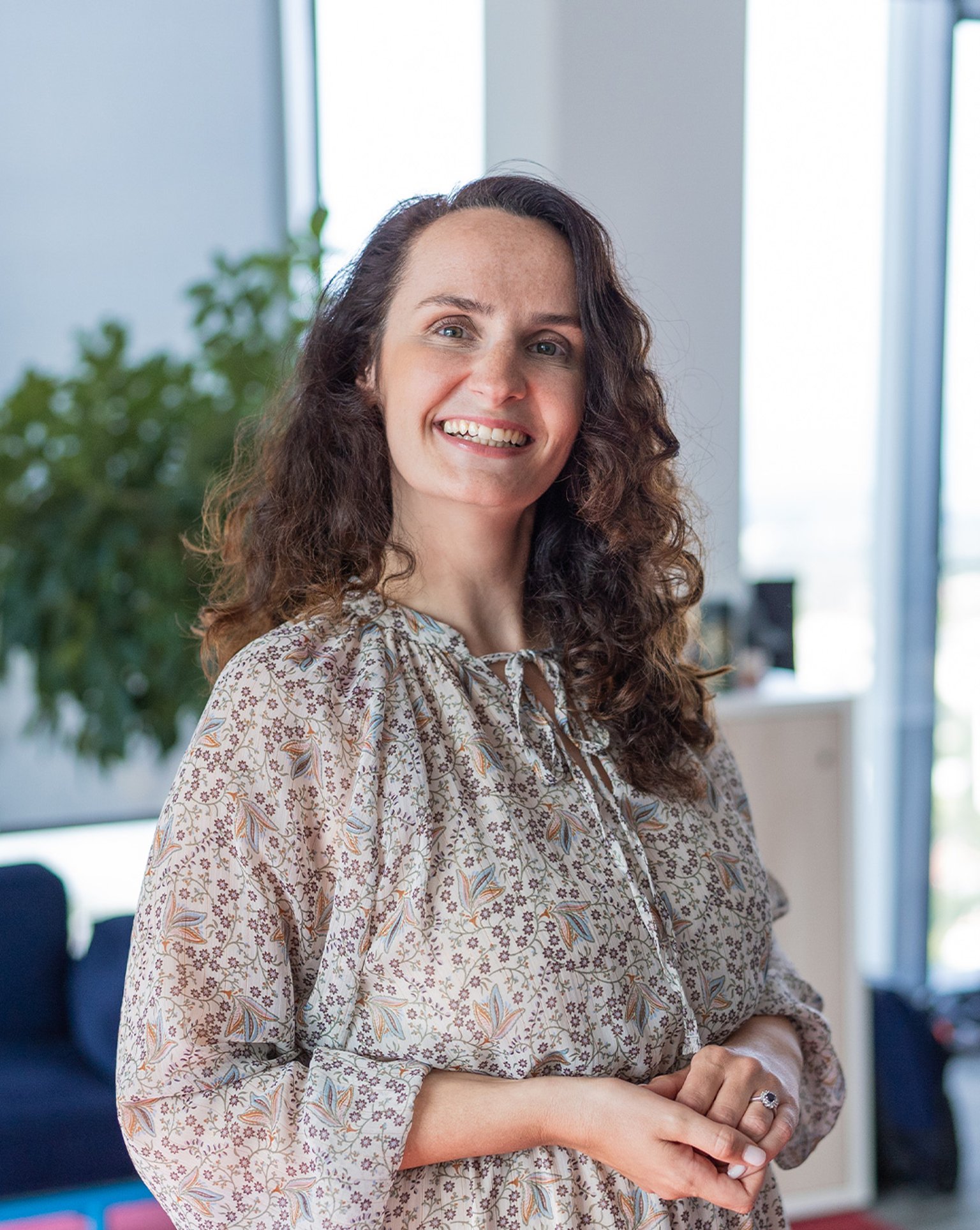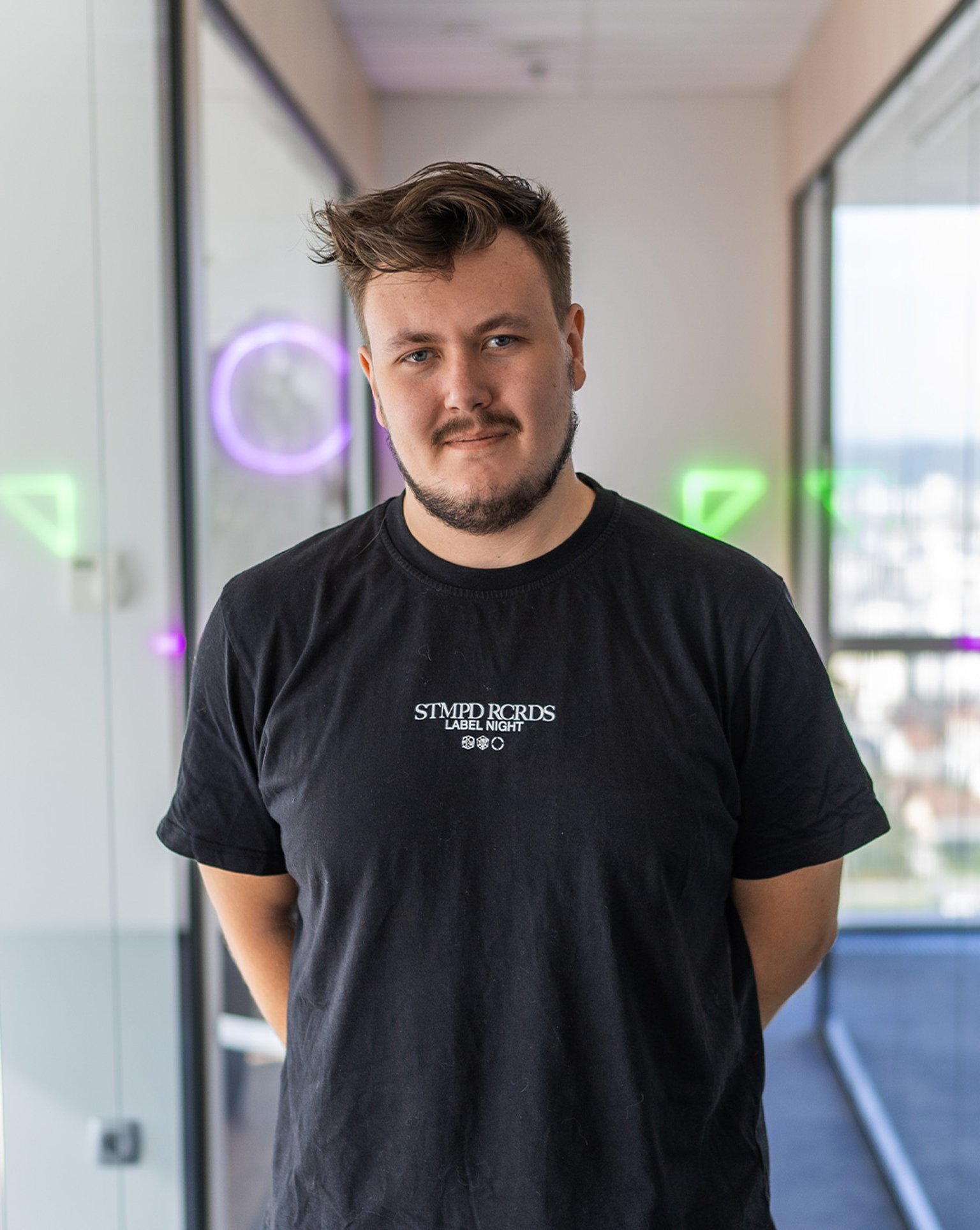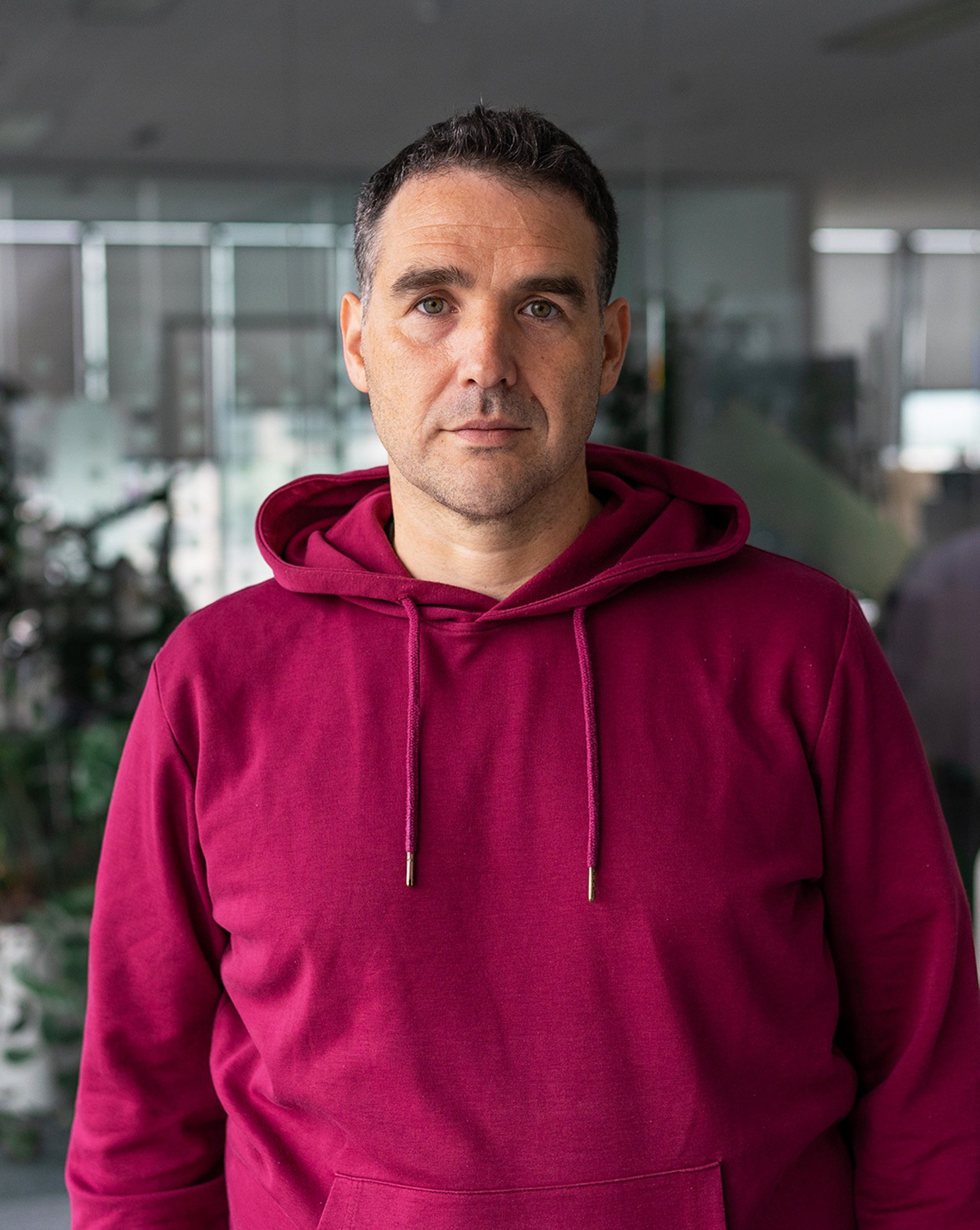When it comes to junior roles at Outfit7, expertise isn’t the main thing we’re looking for. We’re much more interested in drive and a willingness to learn. And that’s how, back in 2017, I managed to land a job as a Junior Quality Assurance Engineer at Outfit7 (Ekipa2 subsidiary). Before that I’d spent about five years working in the psychology field, and that experience has actually proven pretty useful. And, of course, I’m an avid, lifelong gamer. I even used to sketch out my own game ideas on paper when I was a kid. I think all of this must have been taken into account when I was hired, because I certainly didn’t have any previous games industry experience.
I don’t have a particularly technical mindset either, and quality assurance is usually more of a technical job. I could certainly find bugs — I literally opened thousands of Jira tickets when I was in QA — but when it came to really technical stuff like backend testing, that was not my jam at all. So, it was actually really cool that my managers didn’t push me in that direction, but instead encouraged me towards more product-centric QA tasks. It was always, “Žiga, you’re gonna check how this feature looks and feels, and what we need to improve from the player’s perspective,” which really suited my product-oriented mindset and gave me the opportunity to thrive.
There is room for creativity in QA, but ultimately there’s a limit to how much. So, the product side of things and the design side of things always interested me more. That was what inspired me and what I always had a passion for. And if I'm going to be spending five days a week of my limited lifetime on something, it needs to really motivate me. So, over time I was pulled, quite organically, in the direction of the product department. Until one day Ante Odić, Senior VP of Product Development, came to me and said, “Hey dude, do you want to join our team?” And, of course, I did!
Many moving parts
I came across the term “product manager” for the first time when I started working at Outfit7. I must admit, I didn’t initially have any idea what a product manager does, but I was immediately intrigued by it. There are many different aspects to the role, so I needed quite some time “on the field” to get all the essential parts that connect to make up product management. But by the time I moved over to product management, I had a pretty good idea of what was expected.
My main responsibility as a product manager is to understand the vision of the game and, crucially, to make sure that everyone on the project is aligned on how we’re going to fulfill it. The amount of effort and brain power that goes into producing a game is insane if you think about it. There are all these moving parts that you need to tend to, and every one of these parts has the potential to ruin the final product. So it’s essential that you keep everybody involved aligned on exactly what we are making and why we are making it so that all these intertwined parts can come together as something solid and something whole.
You have a lot of very smart people with a lot of different expertise that can actually influence those moving parts. And then on top of that, you have the games industry, which is very volatile and unpredictable. There are so many factors to take into account: trends, rules, platforms, consumer types, age categories… you name it. There’s a lot of stuff that needs to come together and align almost perfectly for a product to end up a success.
But I also have to understand the broader market and the market opportunity that we’re aiming for — in other words, the business reason behind the idea. And then, of course, the follow-through. You produce something and then check what’s happening, and then pivot, or fix it, or make more of it.
The human element
I got into psychology in the first place because I’ve always been really interested in people, so the human dynamics within a team are also a high priority for me. As a product manager, my day is filled with meetings involving diverse individuals, each bringing their unique background and expertise to the table. It's crucial to "keep the peace" in these meetings, ensuring everyone is aligned and has the opportunity to share their perspective.
We all naturally pick up on subtle cues such as changes in someone's tone of voice, facial expression, or body language. But my background in psychology makes me more attuned and attentive to them. Understanding where someone is coming from is essential for me as a product manager. I strive to comprehend not just what someone is saying, but also how they are feeling about the topic being discussed. This keen insight is integral to my approach. It allows me to connect with my colleagues and find a common language, leading to better collaboration and alignment within the team.
Another benefit of my keen interest in people is that it makes me mindful of the product’s end user. I was actually a real pain in the ass for a lot of developers and product teams back in the day, because I was constantly challenging — not just for the sake of it, but for the sake of producing a feature or product that users could enjoy. At every step of the way, you need to be mindful of how the user is going to perceive the game.
People as a badge of quality
I believe my player-centric approach is a great fit here. Outfit7 games are all on mobile and are designed for a broad, diverse audience, so it’s important that they’re accessible and can be understood quickly and easily. Getting a game to the point where we’re confident that the end user — regardless of who they are and how much experience they have with games — will quickly understand it and start enjoying it is really quite difficult. But I think Outfit7 actually does this very well.
And perhaps that’s because we’re so people-oriented. I’ve met a lot of really, really cool people during my years at Outfit7. People who have really influenced my career, my decision-making, my growth, and the development of my own expertise. It’s the people and culture that elevate Outfit7 above any of the companies I worked for in the past. Particularly, in my case, Mateja Vrhovnik, who was one of the managers who made sure I wasn’t burdened with technical tasks in QA engineering, and encouraged the enthusiasm and drive I have towards making games. And then there’s Jaka Robnik, Head of Product at the Ekipa2 subsidiary, who’s hands-down my favorite manager, and one of the smartest people I know.
It’s truly a pleasure working alongside my co-workers. I think of Outfit7’s people as a kind of badge of quality for the whole Outfit7 organization. And it’s one of the main reasons I’m still here, for sure.

